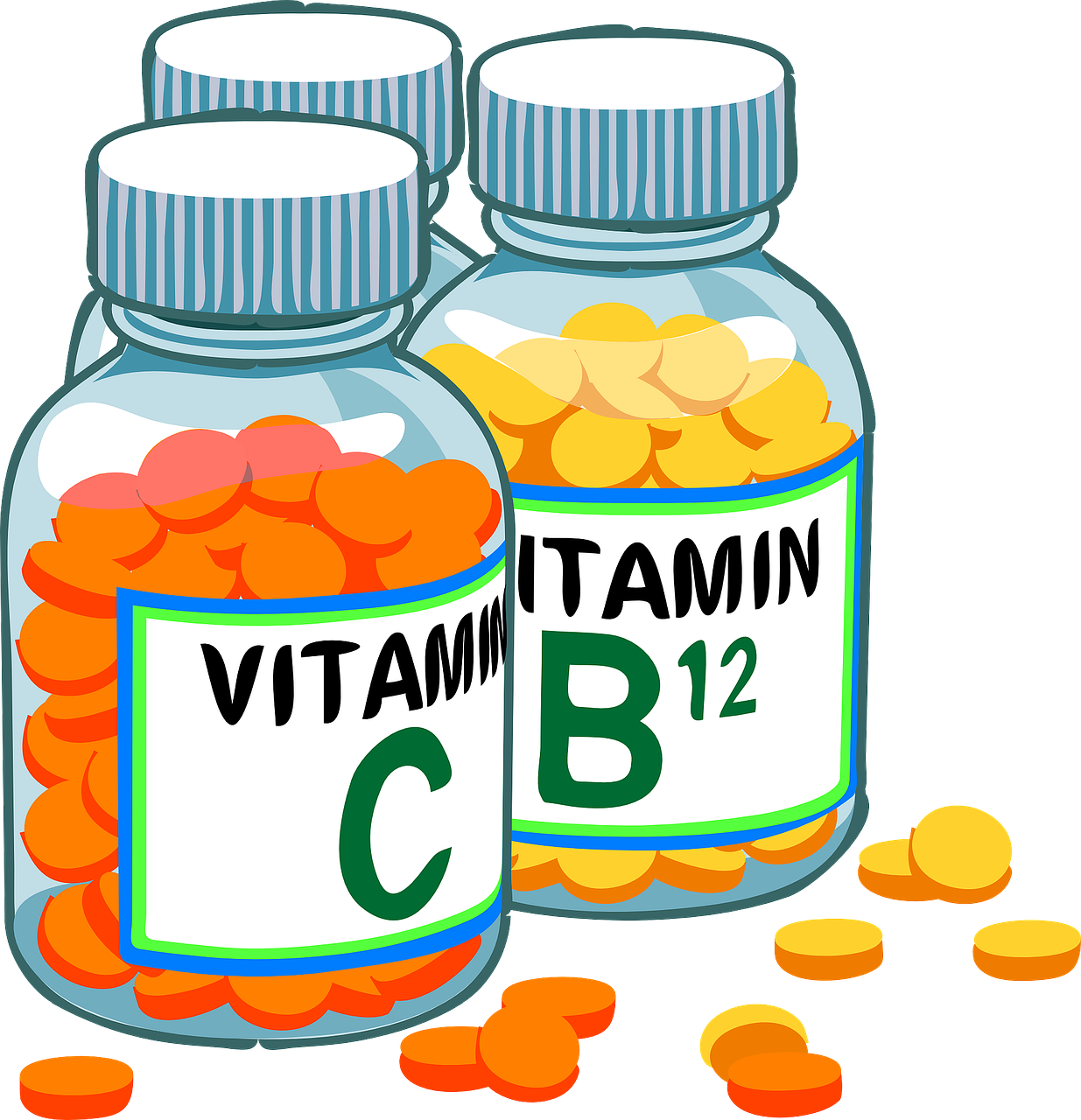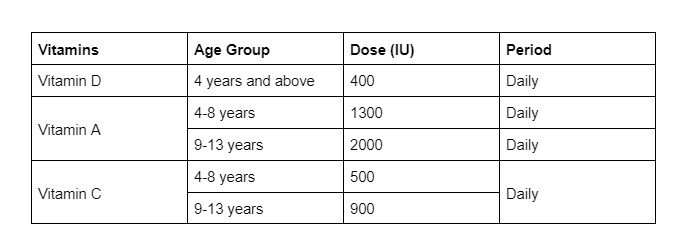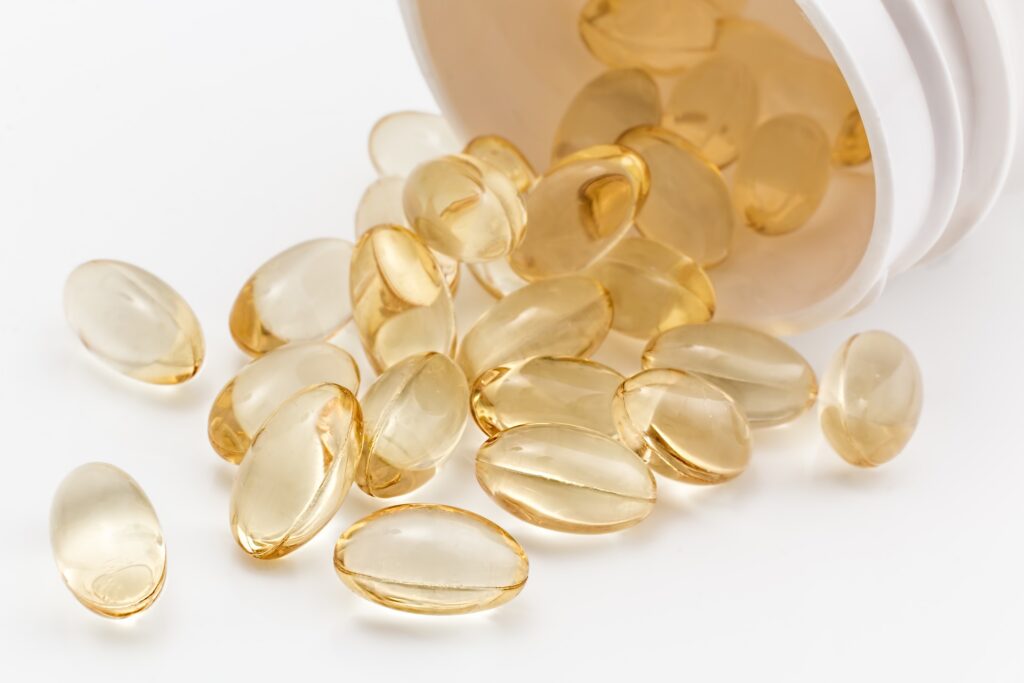
Do you feel weaker as you age? Do you get tired often and before the end of the day? Do you have wrinkles and dark circles? These are typical symptoms of lack of essential nutrients in your diet.
Vitamins, which are a type of supplements, are required for your normal growth and development. Market is awash with vitamin supplements. Before you go and buy them, know that you can get vitamins from natural sources as well. Also know that while you need to take vitamins, you shouldn’t take them too much. Vitamin overdose can be dangerous.
You may also like:
Moringa Powder Benefits and Side Effects: Why is It Called a Miracle Tree?
In the following table, you’ll find information on vitamins, their natural sources, and their deficiency and overdose symptoms.

Your body requires different vitamins at different ages. What you need in your 30s may not be needed in your 50s, etc. It is therefore important to know which vitamins to take according to your age. This would ensure driving maximum benefits from them.
Here is the list of supplements you should add to your diet according to your age.
1. Infants and young children (0-4 years)

According to the National Health Services (NHS), the British government encourages parents to provide vitamin supplements to children aged six months to 5 years. Even breastfed babies need a dose of vitamins. The most important vitamins for a baby to grow are Vitamin A, C, and D. Find and buy Vitamin A,C, and D supplements directly from OLX classifieds.
If your baby has an intake of more than 500ml (about a pint) of infant formula, daily, there is no need for vitamins. As the formula already contains vitamins A, C and D. Avoid overdose, as in some cases, unaware parents can feed their infants double dose through different intake sources. Here is what the UK Department of Health and Social Care recommends,

2. Childhood years (4-13 years)

In this growing period, the body requires optimum supply of vitamins. This is the time when teeth and bones are growing. So Vitamin D should be the prime focus. Find and buy Vitamin D supplements directly from OLX classifieds.
Here below is the suggested amount of nutrients for tweens and teenagers.

3. Adulthood (14-18 years)

14 to 18 year olds are energetic because they have a great metabolism. However, they also require a certain amount of vitamins. Below are the adult requirements of vitamins.

4. Manhood (19-50 years)

Many may not feel the need to take vitamins as they enter this age group, however as they age they would feel the need due to tiredness and lethargy, etc. Add the following amount of vitamin supplements to your diet to boost decreasing energy levels.

Things to consider before taking vitamin supplements

- Always consult with your doctor/physician before taking vitamins.
- Your body is already processing a significant chunk of vitamins from your diet. The natural sources for vitamins we have listed above are the best as compared to artificially manufactured vitamins.
- For babies on formula milk, all required nutrients and vitamins for growth are already provided in the formula. Don’t overdose your child with additional vitamins, as it may cause more harm than good.
- Smokers usually require more vitamins per day. For example, in the case of Vitamin C, they need an average of 35 mg/day more than a non-smoker. Find and buy Vitamin C supplements directly from OLX classifieds.
- In countries where there are hot and long summers, people are naturally generating vitamin D through the sun.
- For people with dark skin, the production of vitamin D is less. Such people may require vitamin D supplements.
What to take away from this blog
Your body breaks down food into vitamins and minerals. However, depending upon your diet, you may not be getting enough vitamins, which are required for a healthy living. If you suspect that your diet isn’t healthy or you are looking for a vitamin rich diet, we have listed that information in this blog. As you start eating a vitamin rich diet, be mindful of the fact that taking vitamin supplements may cause excess levels of vitamins in your body, which can be dangerous.
Did you find this blog helpful? Are you a medical practitioner who has tips to share with our readers? Please comment below.
You may also like:








Leave a Reply